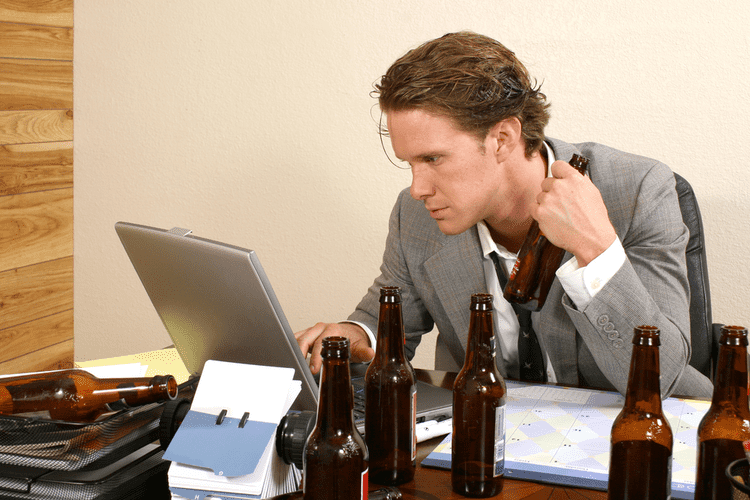Content
She also recommends starting with an event where you’re most comfortable and even relying on an alcohol-free beverage to ease the transition. “There are multiple ways to manage alcohol use in social settings to include learning and implementing harm reduction strategies, moderation management, and using refusal skills. It’s important to remember that you have the power to choose,” she adds. The less you drink, the lower your risk of alcohol-related harm.
Healthline has strict sourcing guidelines and relies on peer-reviewed studies, academic research institutions, and medical associations. You can learn more about how we ensure our content is accurate and current by reading our editorial policy. It’s important to remember that labeling yourself is not necessary to take a step back and reconsider alcohol’s role in your life. That’s why Mehta recommends being kind to yourself and thinking about this as an experiment. “It’s important to seek professional help if your attempts to curb or eliminate your alcohol use are unsuccessful,” says Ellinwood. This article is part of a content partnership with our friends at Tempest, the first evidence-based digital recovery platform.
How to Drink Less This Year
From better quality sleep to improved complexion to better finances, going three weeks without alcohol can make a big difference in your overall well-being. Read on to learn about the benefits of taking a break from drinking alcohol. Then, if you decide you want to try Dry January, here are 5 Mocktail Recipes That Are Almost Better Than the Real Deal. Despite what you might be thinking, the number of times you’ve tried to cut back in the past and then failed doesn’t matter. Your ability to change your drinking boils down to your mindset. We discuss how alcohol is linked to many parts of our lives and why Andy described himself as a ‘middle lane drinker’ before he gave up alcohol 6 years ago. He explains why taking a tactical break from alcohol could bring a surprising host of benefits and how his own experience changed his life.
Here is how ‘Dry January’ can help and hurt you – The Hill
Here is how ‘Dry January’ can help and hurt you.
Posted: Thu, 19 Jan 2023 08:00:00 GMT [source]
Alcohol causes a “steady depletion of the vitamins and minerals that our body needs to feel our best,” explains Brooke Scheller, DCN, CNS, doctor of clinical nutrition. In fact, alcohol use can make you more susceptible to pneumonia, for example, and predispose chronic drinkers to things like infections and even poor wound healing. Trade a Bad Habit for a Good One– Trying to rewire years of conditioning is hard. Identify your drinking triggers and uncover the benefit you are receiving (i.e. stress relief, companionship, etc.). Then replace the drink with another activity that provides a similar benefit. For example, if you go to happy hour for companionship, try booking a group exercise class with your friends instead.
What Happens When You Stop Drinking Alcohol?
Improved Sleep– While drinking may help you fall asleep, it suppresses REM sleep, the restorative part of your sleep cycle. Alcohol is also a diuretic so both of these working together means that you will wake up more often at night and feel less rested. As soon as you stop putting alcohol into your system, you will begin to feel much better. Most people booze for the psychological effects and see the physical downsides as an occupational hazard. However, the harmful effects that alcohol exerts on the body shouldn’t be underestimated.
Peer pressure is a big factor that contributes to people’s decision to drink more quantities of alcohol more often than they ordinarily would. Taking up a hobby such as sport or painting can be a healthy replacement for your 6pm drink and planning ahead for social occasions will mean you’re better prepared for temptations. If you feel like you’re going to cave in, always go back to your plan.
Benefits of an Alcohol Break, Backed by Science
When you drink alcohol, you’re adding an extra toxin into your body that the liver must dispel. This is quite the task for the liver, especially if drinking is a regular or daily occurrence and the extra work can cause long-term issues.
What happens after two weeks of no alcohol?
Two weeks off alcohol will help you reset your sleep cycle, getting you into a regular and undisturbed pattern. You'll wake more refreshed and alert each day, helping to boost your concentration and performance at work and play.
Own Your Limits is a Defense Department education campaign, aligned to the Defense taking a break from alcohol Agency, for the U.S. military. The mission of the campaign is to help Service members learn to drink responsibly, if they choose to drink alcohol. Your gut microbiome is full of bacteria, both good and bad, that, when properly balanced, help regulate different processes in the body. When your gut microbiome is thrown out of whack, you may experience more direct digestive woes and/or less obvious side effects of a disrupted microbiome like fatigue, sugar cravings, and inflammatory skin conditions.
Here are some significant ways not https://ecosoberhouse.com/ for 30 days or more can impact your body, mind, and overall health. Whenever you decide to take a break from alcohol, whether it be during a designated sober month or any other time of the year, the NIAAA website, Rethinking Drinking, has strategies that can help you stop drinking. These include tips for cutting down or quitting, reminder strategies to help you remember why and how you decided to do it, and ways your family and friends can support you.

